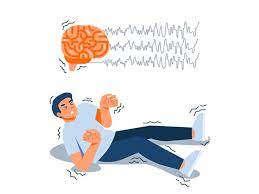Peripheral neuropathy can indeed impact sleep quality. Peripheral neuropathy refers to damage or dysfunction of the peripheral nerves, which can lead to symptoms such as pain, numbness, tingling, and weakness in the extremities. These symptoms can be exacerbated at night, affecting a person’s ability to fall asleep and stay asleep. Here are some ways peripheral neuropathy may affect sleep and strategies to improve sleep quality:
1- Pain and Discomfort:
- Solution: Consult a healthcare professional for pain management through medications, physical therapy, and lifestyle changes.
2- Restless Legs Syndrome (RLS):
- Solution: Manage neuropathy symptoms to alleviate RLS-like symptoms. Consider medications and regular exercise.
3- Temperature Sensitivity:
- Solution: Maintain a comfortable bedroom temperature, use breathable bedding, and consider temperature-regulating bedding.
4- Sleep Position:
- Solution: Experiment with different sleep positions. Use supportive pillows or cushions to relieve pressure on affected areas.
5- Stress and Anxiety:
- Solution: Practice relaxation techniques like deep breathing and meditation. Seek support from a mental health professional if needed.
6- Sleep Hygiene:
- Solution: Establish a consistent sleep schedule, create a relaxing bedtime routine, and ensure a comfortable sleep environment with minimal light and noise.
Individual experiences with peripheral neuropathy vary; consult a healthcare provider for personalized advice and treatment options.
Book a consultation with Dr. Amit Shah, your trusted Neurologist in Kandivali. Take the first step towards managing your neurological health. Schedule your appointment today.



